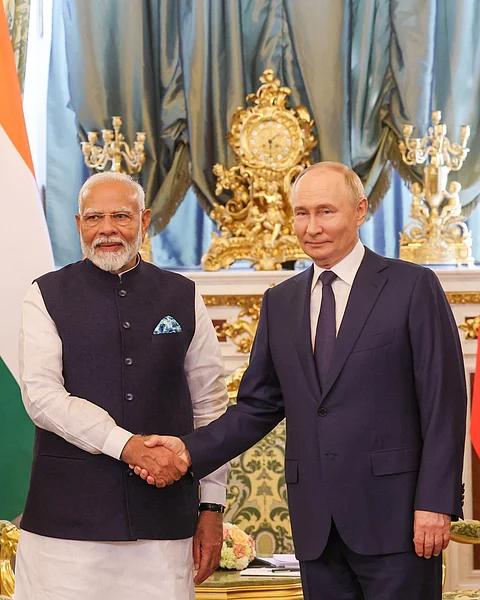

India has accused the United States and European Union of applying double standards in their criticism of New Delhi’s purchase of Russian oil amid the ongoing Ukraine conflict.
On August 4, 2025, India’s Ministry of External Affairs issued a statement calling the targeting of its trade practices “unjustified and unreasonable.”
The response came shortly after U.S. President Donald Trump threatened to escalate tariffs on Indian goods, following an earlier imposition of a 25 percent tariff set to take effect on August 7.
The EU also imposed sanctions in July on Nayara Energy, a Russian-majority-owned Indian oil refiner, and banned imports of refined oil made from Russian crude, impacting India’s refining industry.
India’s Foreign Ministry highlighted that the EU’s trade with Russia in 2024 reached 67.5 billion euros ($77.9 billion), surpassing India’s $68.7 billion trade with Moscow.
It noted that EU imports of Russian liquefied natural gas hit a record 16.5 million tonnes in 2024, while the U.S. continues to import Russian uranium hexafluoride, palladium, fertilizers, and chemicals.
India argues that its imports of Russian crude were initially encouraged by the West to stabilize global energy markets after Russia’s invasion of Ukraine in February 2022.
“India began importing from Russia because traditional supplies were diverted to Europe after the outbreak of the conflict,” said spokesperson Randhir Jaiswal.
The economic stakes for India are significant.
The U.S., India’s largest export market, purchased $87 billion in Indian goods in 2024, while India imported $41 billion from the U.S., creating a $46 billion trade deficit for Washington.
Trump’s proposed tariff hikes threaten to disrupt this balance, potentially reducing Indian exports by 30 percent, according to trade expert Ajay Srivastava.
The EU’s sanctions on refined Russian oil further jeopardize India’s petroleum exports to Europe, which surged from $5.9 billion in 2019 to $20.5 billion in 2024, largely due to discounted Russian crude.
India’s reliance on these affordable imports has saved billions, making Western restrictions costly.
Some experts suggest that Trump’s tariff threats may be a tactic to pressure India into a favorable trade deal, particularly in agriculture, where India maintains high tariffs to protect its farmers.
“The way the Trump administration has been demanding that India open its market to U.S. agri-business – that’s a no-go for India,” said trade economist Biswajit Dhar.
India’s unified stance, with both the ruling Bharatiya Janata Party and opposition Congress condemning Trump’s remarks, signals a firm resolve to defend its economic interests.
New Delhi’s pushback underscores its frustration with being singled out while Western nations continue substantial trade with Russia.